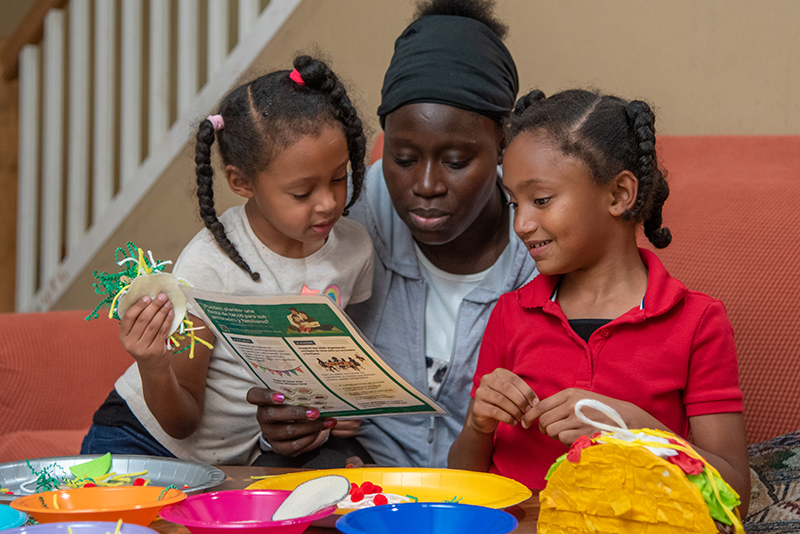
A central focus of the Center for Equitable Family STEM Learning is developing a more expansive and inclusive understanding of families and the diverse ways they engage with STEM. Below are the principles of family learning that guide our current work. These principles continue to evolve as we learn more from families and community partners.
- Family learning is distinct from education and learning in the classroom and other more structured learning environments. For example, family learning is intergenerational, often involves children of multiple ages, is motivated by multiple interrelated family goals and interests that are not constrained by formal assessment or content goals, and builds on the unique histories and learning trajectory from families’ past experiences together.
- Families possess rich knowledge, experiences, and skills that they bring with them to any learning experience, including knowledge and skills related to STEM topics and knowledge of each other as a family developed through a shared history.
- Parents and other adult caregivers play central roles in the family as learners, teachers, and advocates. In other words, adult family members (and often older siblings) are not only “contextual factors” but primary stakeholders in their children’s education and learners in their own right throughout their children’s development.
- Spending time together and strengthening family bonds are primary goals for many families, although every family is unique and family goals, values, relationships, and experiences evolve over time. Experiences, programs, and activities that include the whole family and support relationship building are of high value to many families, and families will often leverage these experiences to support a range of family goals.
- Family learning is a cultural practice that varies across families and communities. Acknowledging the cultural nature of family learning requires educators and researchers to reflect on our own assumptions about families and recognize that there are many ways to support children’s learning and development, as highlighted across communities and cultures around the world.
- Family learning is a systems phenomenon. This means that the entire family is a critical unit of analysis for understanding children’s learning, especially for young children. It also suggests the importance of understanding communication and connections between family members and the ways that system properties, such as the nature of STEM engagement or long-term STEM-related interest pathways, emerge from this process.
Download the Family Learning Framework with references.
Suggested citation: Pattison, S. A., & Ramos Montañez, S. (2023). Family learning principles: An evolving framework. Center for Equitable Family STEM Learning at TERC.
